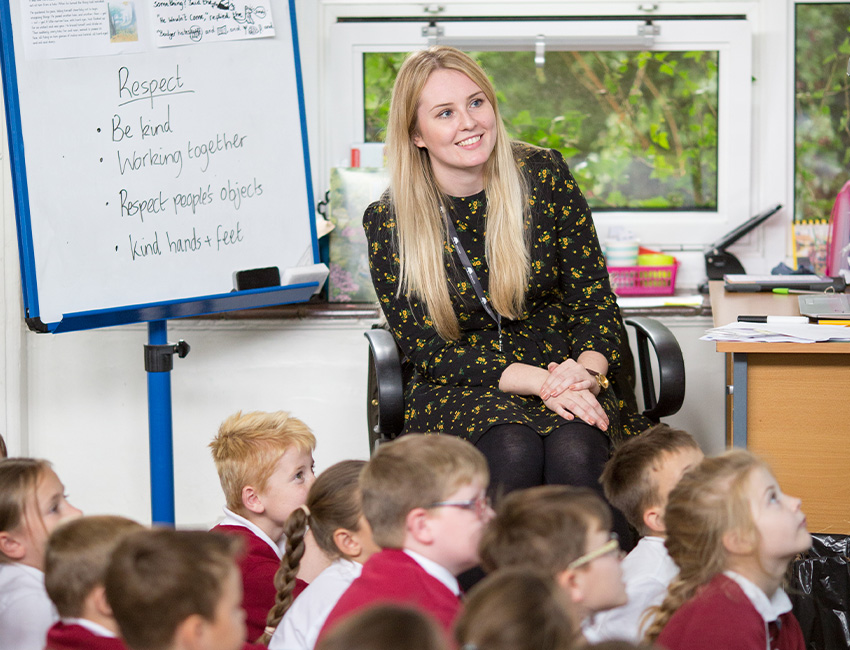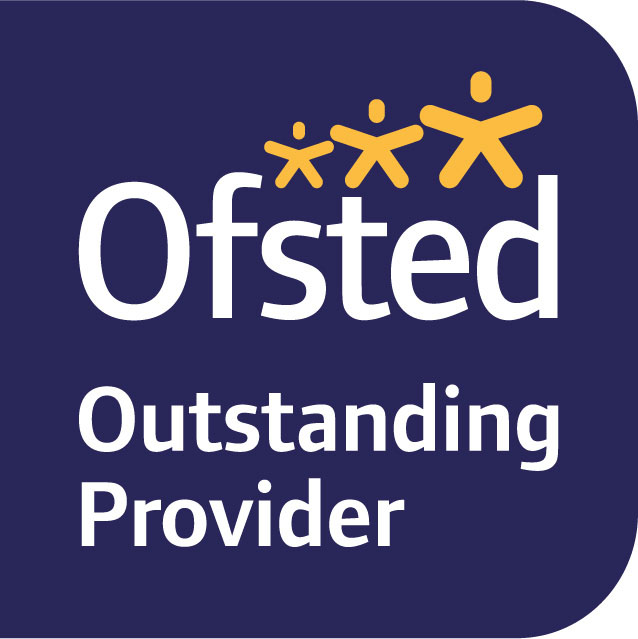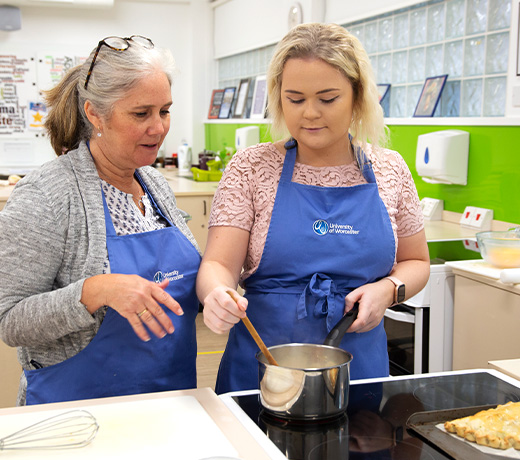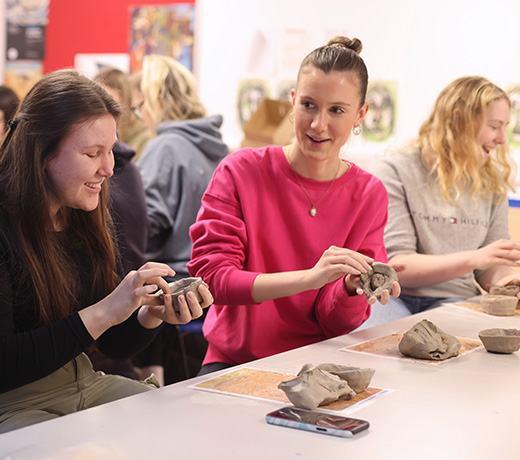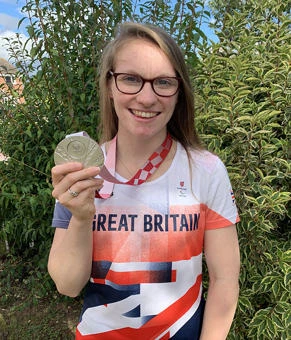As an Ofsted Outstanding institution with a long and proud history of training teachers, we prepare you for this rewarding career through a mix of carefully selected school placements, interactive seminars, and subject skills sessions. This professional degree will qualify you to teach across all primary years, but you will specialise in teaching 3-7-year-olds or 5-11-year-olds.
An exciting and inspiring place for trainee primary teachers to study
Joint 1st in the UK for Quality Education
We’ve been rated as ‘Outstanding’ in training primary and secondary teachers, the highest possible grade a provider can receive.
University of the Year finalist
Recognised for our graduate success, we’re shortlisted for University of the Year in the Times Higher Education Awards 2025.
Overview
At Worcester, you’ll gain experience through multiple placements in a variety of school environments throughout the year, preparing you for a successful transition into teaching.
When not on placement, you’ll be taught through a mixture of lectures, workshops and interactive subject sessions covering the full spectrum of National Curriculum subjects. In these interactive sessions, our tutors will model effective teaching and classroom management strategies. They’ll then pause their ‘teaching’ to clarify their actions and the reasons behind them. Specialist facilities, such as our DT room, gymnasium, music room and art studio, are designed to replicate the school environments you’ll be teaching in, allowing you to learn in authentic settings.
In addition to your subject-specific sessions, you’ll also cover topics like behaviour management and inclusive practice, as well as carry out your own research project. In each year, our 'Developing Self' module will equip you with tools for good mental health and wellbeing, and give you space to reflect on your personal development.
The route you choose will determine the focus of your modules. For example, if you choose early years, you’ll learn how to adapt a maths lesson for 3 or 4-year-olds. In a later years group, you might be creating a computing lesson plan for 10-year-olds.
No matter which route you choose, you will qualify to teach across all primary areas – giving you flexibility throughout your career.
Placements
Across the three years, you’ll carry out at least 24 weeks of placements.
We work with over 200 schools in Worcestershire, Herefordshire, Shropshire, Gloucestershire, Birmingham and beyond, and carefully select your placements to give you a range of experiences across different key stages and in different types of school. So, in your first year you might be in a Key Stage 2 class in a small village primary, and then in your second year a Key Stage 1 class in a large, culturally diverse school.
You’ll be supported in school by trained mentors and class teachers, as well as your university tutors. They will observe you teach and give instant feedback to ensure you continually improve through reflective practice.
A day in the life of a primary school teacher
Course content
You’ll study modules covering the whole primary curriculum to build your subject knowledge and teaching skills, and cover topics like behaviour management and inclusive practice. You’ll also carry out your own research project in your final year of study.
All modules are mandatory to ensure you’re eligible for Qualified Teacher Status.
We regularly review our courses to reflect the latest research and developments in the subject area, as well as feedback from students, employers and the wider sector. As a result, modules may change to ensure the course remains current and relevant.
Careers
At the end of this course, you’ll be qualified to teach in a primary school in the UK. Most of our students quickly find jobs after they graduate, thanks to the connections they make on placement, the confidence they’ve gained on the course, and our excellent reputation with schools in the region.
Many Worcester graduates then go on to leadership roles within schools, as curriculum leaders, special educational needs coordinators, key stage leaders, deputies, or head teachers.
Your Qualified Teacher Status (QTS) will also be recognised in many countries around the world, giving you the opportunity to see the world.
Support early in your career
At Worcester the support doesn’t end when you graduate. Our Early Career Teacher (ECT) network continues to offer support and professional development opportunities as you go into your first job.
"Trainees benefit from an exceptional learning experience at the University of Worcester. This experience instils in them a deep-rooted commitment to making a difference to the lives of the children and young adults in the communities they serve."
Course highlights
Teaching and assessment
You will be taught through a combination of interactive seminars, workshops, and lectures. In the seminars you’ll link educational theory to your placement experience, through reflection and evaluation.
You’ll have seminars in all National Curriculum subjects, allowing you to experience the full range of subjects you’ll be teaching in primary schools. A typical session will be interactive, with practical work, group discussions and the chance to ask questions. Practical subjects will be taught in specialist spaces such as DT rooms, gymnasiums, and dance studios.
There are no exams on this course. Instead, you’ll be assessed through a mix of written assignments, debates, presentations, and observations of your teaching.
Teaching and assessment contents
You are taught through a combination of face to face lectures, seminars, workshops, study of key texts, participation in group discussions and problem solving activities, debates, presentations, peer learning, case study approaches, independent learning and school based practical activities and teaching. The seminars will enable you to link educational theory to practice through reflection and evaluation. You will have seminars in all National Curriculum subjects to enable you to experience the full range of educational provisions in primary schools. Practical subjects will be taught in specialist spaces such as DT rooms, gymnasiums and dance studios.
You will be predominantly taught in seminar groups of 25 - 30 trainees to enable debate, discussion and development of understanding of subject knowledge and pedagogies required for teaching primary age phase pupils. Lectures may take place as part of whole cohort teaching; school based learning is also a key feature of the course with tutors and expert colleagues from school working in partnership to develop knowledge and understanding around key areas.
In addition, you will be expected to engage in online research, completing learning activities and accessing learning materials each week for around 20 hours per week. This includes independent study preparing for assessments.
In each year you will complete a School placement although this is subject to change due to exceptional circumstances. The programme is designed to ensure you experience at least 120 days of school experience in at least two contrasting schools or Early Years settings. You will also complete Intensive Training and Practice (ITAPs) although this is subject to change due to exceptional circumstances:
Student case studies
Some recent graduates reflect on their time on the course.
Entry requirements
UCAS tariff points required: 112
| Qualification | Grade |
|---|---|
| A-level | BBC |
| BTEC National Extended Diploma | DMM |
| T-level | Merit |
We do accept Access to HE Diplomas and other qualifications which may not exactly match the combinations above. Work out your estimated points with the UCAS tariff calculator.
Any questions?
If you have any questions about entry requirements, please call our Admissions Office on 01905 855111 or email admissions@worc.ac.uk.
Fees
Fees contents
UK and EU students
In 2026/27 the standard fee for full-time home and EU undergraduate students on BA/BSc/LLB degrees and FdA/FdSc degrees is £9,790 per year.
Tuition fees are reviewed annually and may increase each year for both new and continuing students.
For more details on course fees, please visit our course fees page.
International students
In 2026/27 the standard tuition fee for full-time international students enrolling on BA/BSc/LLB degrees and FdA/FdSc degrees is £17,200 per year.
Tuition fees are reviewed annually and may increase each year for both new and continuing students.
For more details on course fees, please visit our course fees page.
How to apply
How to apply contents
Applying through UCAS
UCAS is the central organisation through which applications are processed for full-time undergraduate courses in the UK.
Read our how to apply pages for more information on the application process, or if you’d like to apply for part-time study.
Apply for entry in academic year 2026/27:
Apply for Primary Teaching with QTS BA (Hons) (3-7 years)Apply via UCAS for Primary Teaching with QTS BA (Hons) (5-11 years)Contact
If you have any questions, please get in touch. We're here to help you every step of the way.

Admissions Office
admissions@worc.ac.uk01905 855111More to explore
Open Days
Visiting us is the best way to get a feel for student life at the University of Worcester.

The City of Worcester
Worcester is a welcoming university city with great transport links and plenty of student parking.

Accommodation
Benefit from our accommodation guarantee. We have rooms on campus to suit every budget including en-suite options.

